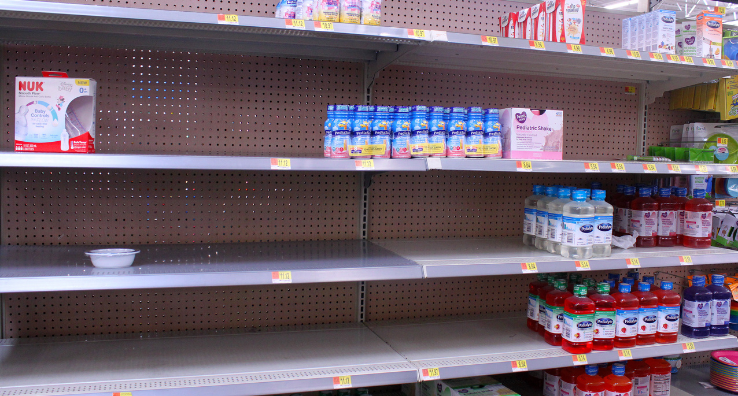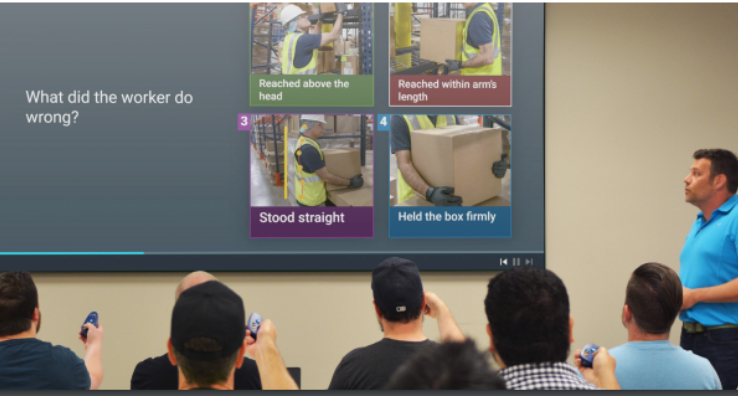10 Lessons to Learn from the Abbott Baby Formula Recall

Slowly but steadily, grocery stores seem to be replenishing their supplies of baby formula after one of the most high-profile product recalls in our nation’s history. While the situation hasn’t entirely returned to normal, it’s still far better than it was two months ago.
Hopefully, parents can breathe a sigh of relief. But for food manufacturers, this is a time to take note and reflect on the mistakes that brought about this tragic event.
Abbott Nutrition, which produces about one-fourth of the nation’s infant formula, will forever be tied to this year’s baby formula shortage disaster because it fell short on so many levels to keep products safe at its plant in Sturgis, Michigan.
It’s unthinkable that parents in one of the wealthiest countries in the world could not find formula to feed their children. The human toll was even more tragic, with at least one death and two hospitalizations attributed to the recall, not to mention numerous illnesses across the country.
Many of the factors behind this crisis could have been easily avoided or at least quickly corrected. Instead, it took a whistleblower to issue a 34-page report to the FDA citing falsified records, releasing untested products, sanitation problems, information hidden from auditors, failure to take corrective actions, and traceability issues.
Even then, the FDA failed to take action expediently as it took months for the report to make it from the mailroom to the Deputy Commissioner.
In addition to near irreparable damage to its brand, Abbott Nutrition and members of its executive team are facing regulatory actions, potential criminal prosecution, and lawsuits. Meanwhile, the FDA is stepping up broader enforcement levels, possibly to help mitigate a very public failure to prevent the event from occurring.
For everyone else, the formula recall offers an opportunity for the rest of us to learn from Abbott’s mistakes and to prepare ourselves for intensified scrutiny from federal regulators.
So, with that in mind, here are 10 lessons every food manufacturer should learn from the Abbott Nutrition infant formula recall to prevent similar incidents.
- Maintain the Integrity of Your Record Keeping Practices and Don’t Falsify Information
This seems obvious, but many food manufacturers still don’t have a formalized process to maintain proper record-keeping practices. This process should be documented and shared when necessary with auditors. And there should always be a zero-tolerance policy to prevent falsified records. - Prevent Insanitary Conditions that Allow Hidden Microbiological Growth
Many companies think they’re operating a clean plant. But they might be unaware of hidden microbiological growth. This is bacteria that is invisible to the eye and can exist in various food processing equipment, such as tables with hollow legs where bacteria can grow. This threat is difficult to see without the right environmental monitoring tests , which the FDA and USDA use. Once discovered, it falls under the term insanitary conditions. - Establish Robust and Validated Environmental Monitoring Programs
Food manufacturers should have environmental monitoring programs where they test equipment and the processing environment for various types of pathogens. When we work with clients to help set up these programs, we focus on four different zones in a food processing facility. Zone #1 is the food contact surfaces. Zone #2 is indirect food contact surfaces such as the framework of the equipment. Zone #3 includes environmental areas inside the processing room, like floors, walls, and drains where bacteria can grow and spread. And zone #4 consists of the outside processing areas, environmental areas like break rooms, and common hallways. It is imperative to identify the correct sites to sample, assure adequate sampling frequency and trend results to act when necessary. - Implement and Validate Sanitation Procedures
Unfortunately, many food manufacturers fail to maintain, validate and consistently implement proper sanitation procedures. Sanitation jobs can be tough. They involve cold and wet processing environments and usually worked during third shifts. Most companies struggle with an excessively high employee turnover in these positions. And with few workers on hand, they strive to prepare for the next shift in just a few hours. So, maintaining sanitation and procedures is a big challenge for many companies. - Properly Train Employees to Perform Tasks such as Reviewing Clean-In-Place (CIP) Cleaning Charts
Parts of the Abbott report included a lack of employee training to confidently perform tasks such as reviewing CIP charts and covering basic things like running chemicals and sanitizers through equipment. There are charts associated with this process, including the temperature of the various solutions used, the concentration of the chemicals, and how long it was cleaned. Then, those charts should be reviewed and verified to ensure the cleaning is performed correctly. The Abbott report specifically called out the lack of training of employees to understand how to review and approve these charts. - Take Immediate Corrective Actions When Needed
A failure to take effective corrective actions was a big issue across the board for Abbott and one that all companies find difficult to do. But unfortunately, in the food industry, it’s much more common to put a band aid on a symptom than conduct a root cause analysis to identify a problem. Fix the root problem as soon as you discover it, so you’re not fighting the same fire day after day. - Establish Traceability Throughout Your Process
Food manufacturers need to be able to trace all raw materials, packaging materials, processing aids, and anything that goes into their finished product, as well as their shipping processes and destinations. Most companies are pretty good on the shipping side. They know where the product went, but they’re not so good at tracing the raw materials and processing aids that come into their manufacturing facilities. That was one of the issues cited with Abbott Nutrition and it’s a problem in the food industry as well. - Create Processes to Identify Falsified Product Hold and Release Issues
When companies produce ready-to-eat products, they often have mandatory testing programs. They have to test those products for certain types of bacteria or pathogens, and they should hold that product at their plant until they confirm negative test results. In the case of Abbott Nutrition, they were caught falsifying some of these documents, saying that it was okay to ship when in reality it wasn’t. - Provide Transparency During Audits and FDA Investigations
During the Abbott investigation and audits, there was a lack of transparency and a willingness to withhold information. This can be a fine line to walk. When your workers’ and your customers’ health and safety are on the line, it’s important to be as forthcoming as possible. When preparing for audits, there’s the temptation only to answer questions when asked and to avoid volunteering additional information. But as you read through some of the report documents, Abbott went so far as to purposely withhold information and even celebrate when certain information wasn’t uncovered during the FDA investigation. - Ensure Employees Feel Safe to Say Something When They See Something
Your frontline employees are your best defense for maintaining food and workplace safety. Make sure your employees know they won’t face retaliation for reporting incidents. In Abbott’s case, the whistleblower talked about retaliation against employees for reporting food safety concerns. And some employees were afraid they might lose their jobs if they raised concerns.
These are 10 of the most obvious lessons we can all learn from Abbott’s missteps around their baby formula recall. There are more that a member of our consulting team or I would be happy to discuss.
The food industry must do as much as possible to ensure a safe and sustainable food supply. This means evaluating food safety and quality assurance systems to identify potential risks and reassess programs to create a stronger food safety quality assurance (FSQA) system.
It’s also critical to develop a robust food safety culture across the entire company from the top down. And then, equally as important, there is the issue of sustainability. Our country relies too much on just a few manufacturers to supply critical food supplies in too many areas. In the case of Abbott Nutrition, one major factory shutdown sent shockwaves through the industry and panicking consumers.
These manufacturers must have backup plans and processes in place in case of recalls, fires, tornados, floods, sabotage, or any other issue that might bring their operations to a halt.
And then finally, every manufacturer needs to be proactive in maintaining food safety. No company should rely on inspectors or auditors to discover their issues. We frequently work with clients to help them anticipate questions and problems that can occur during audits through robust internal auditing processes. This not only allows them to pass their audits but also gives them the ability to proactively identify and address issues before they become major violations or national recalls that make headlines.
If you want to know more about these steps or to conduct an evaluation of your environment or FSQS systems, please contact us. We can provide a consultant to come to your business to conduct a thorough food and workplace safety assessment of your operations.





